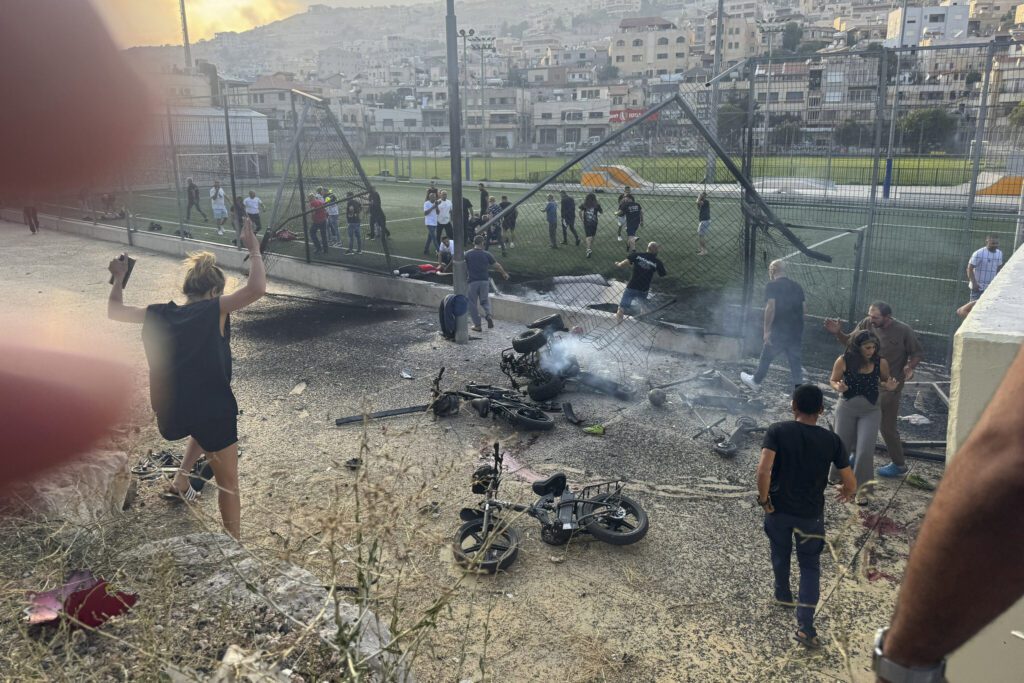Concerns of an all-out escalation in Lebanon have been at their highest since the start of the fighting on October 8, 2023. Fear of an Israeli strike on the Lebanese capital has considerably increased over the weekend, with tensions have notably been high following the Majdal Shams attack in the Israeli-occupied Syrian Golan Heights.
Since yesterday, Beirut’s Rafic al-Hariri International airport has seen the cancellation or delay of many scheduled flights, including those of Lebanon’s flag carrier, Middle East Airlines (MEA), which has so far delayed many of its flights originally scheduled for Sunday and Monday.
The attack on Majdal Shams hit a football pitch, killing 12 children and young people and injuring 30 others of the area’s Syrian Druze population. The source of the attack remains unknown, with both Hezbollah and Israeli forces denying responsibility.
However, Israeli officials have used the attack as an excuse to further escalate matters, claiming that Hezbollah has crossed a “red line” and will “pay a heavy price” unlike anything seen since October 8 of last year.
According to an Axios source, an unnamed United States official said that Hezbollah officials told the United Nations that what hit the football pitch consisted of an Israeli anti-rocket interceptor projectile.
Local Reactions
In Majdal Shams, local residents expelled Israeli Finance Minister Bezalel Smotrich and other Knesset members who tried to attend the funeral, calling Smotrich “murderer,” “filthy” and telling him “get out of here.”
Majdal Shams is an Israeli occupied Syrian town, where residents proudly proclaim and defend their Syrian and Arab identity, and where the population continues to express its rejection and enmity vis-à-vis the Israeli occupation.
Increasing Tensions
Following the strike, pundits in Lebanon and around the world have warned of a potential all-out escalation. Global travel warnings to Lebanon have intensified, including from the United States Embassy, which urged American travelers to closely monitor the situation and be flexible with their plans.
In Lebanon, Progressive Socialist Party leader and Druze politician, Walid Jumblatt, warned of Israeli attempts to sow discord and fragment the region, and highlighted Israeli forces’ repeated massacres of civilians.
International Reactions and Expansion of Players
While the United States official position remains against an all-out war in Lebanon, the country’s endeavors have hitherto miserably failed to put an end to Israel’s expansion of operations deeper into Lebanese territory.
On his part, British Foreign Secretary, David Lammy, contacted Lebanese caretaker Prime Minister, Najib Mikati, expressing his concern over escalating tensions and welcoming the Lebanese government’s recent statement in which it called for an end to all violence in the region.
Meanwhile, Turkish president, Recep Tayyip Erdoğan, announced that Türkiye might enter Israel to help Palestinians. Erdogan has repeatedly issued statements in support of Palestinian rights and in condemnation of Israel’s ongoing genocidal campaign but is yet to take concrete steps in terms of military intervention.
Erdogan likened the potential intervention in the conflict to what Türkiye did in Karabakh and Libya.
“Just like we entered Karabakh, just like we entered Libya, we can do the same thing [in Israel],” Erdogan announced.
It is not the only front where Erdogan showcased brinkmanship, however, as the Turkish president also expressed readiness to build a naval base in Cyprus amidst views that Greece wants to establish a naval base of its own there.
